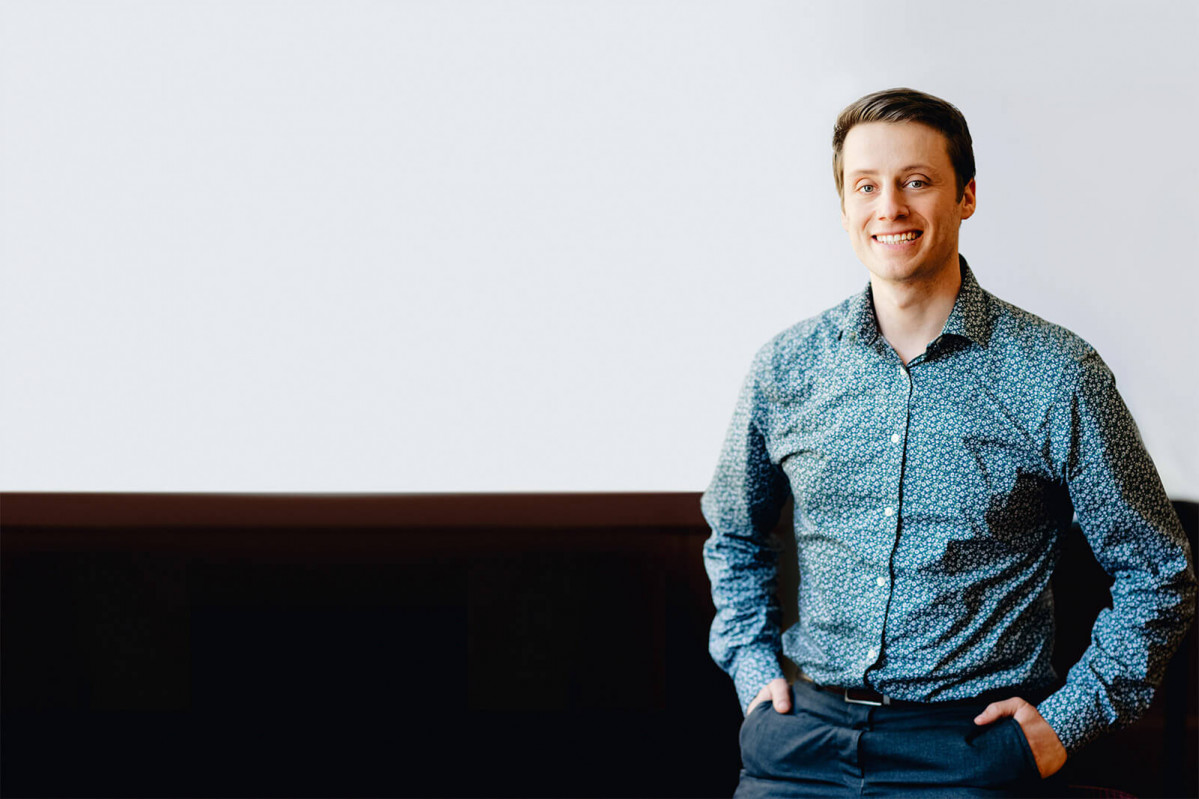Allumia founder Aaron Block reveals lessons learned from growing a start up

By Kathleen Wolf Davis
Some people start companies because they want to make money; Aaron Block started a company because he wants to save the planet.
“Allumia exists to help tackle the existential problem of our time: climate change. We should all be finding ways to drive sustainability and improve the environment,” Block said when I asked him point blank about what inspired him to build this brand.
Allumia fundamentally serves as a first (and practical) step to improving that environment through energy efficiency as a service for small and mid-size businesses (SMB). The company can quickly analyze a facility’s space, usage, and equipment, and then design, implement, and fund energy efficiency equipment upgrades (lighting/HVAC/refrigeration). When installation is complete, they maintain the equipment, meter the energy use, and show you those savings in emissions, kilowatts, and my all-time-favorite: cold, hard cash.
Those savings are key to Allumia’s business and have been a cornerstone from day one. In fact, one of the company’s founding principles is that the best way to get businesses to improve on their environmental performance is to tie those improvements to very clear, guaranteed financial wins.
“Finding a way to drive financial returns from sustainability assets was my goal,” he added, which makes sense given that he describes his college experience as that of a “long-haired tree-hugger” discovering a love for economics. While the pairing of these interests initially caused some internal turmoil, he quickly found they intersected perfectly in the world of green energy.
His green energy journey started with a solar finance company that focused on solar water heating, a first echo of that practical nature that forms the backbone of Allumia today.
“Why did we focus on that boring, mundane element of solar water heating? Well, because it made a ton of economic sense but wasn’t cool or glamourous; so, it wasn’t getting done,” Block said.
In that first venture, Block learned a series of lessons about economics to rival the college classroom, but they can be boiled down to this: Businesses are rightly risk averse and helping them take on big sustainability initiatives requires that you eliminate unforeseen risks and allow them to focus on doing what they do best—running their businesses.
Allumia’s first years as a small, boot-strappy startup gave Block more than his fair share of interesting experiences and even more hard lessons beyond those economic ones. Initially, the company focused on providing direct services that were within a bike ride of downtown Seattle. In the early days, he could easily find himself going from writing metering code to going thirty feet up in the air in a minus-thirty-degree seafood deep-freezer to change out lightbulbs in a single day.
Those early projects, however, proved the concept, and Allumia managed to go from formation to revenue within just eight weeks. Once Block had enough revenue and deals in place, he hired his very first employee—a super exciting moment for him—and the business took off.
“We built our first projects before we had very many standards in place,” he told me. “So, we made some mistakes and took a hit or two, but we learned. We revisited our contracts and our financial approaches. We automated things we could and recrafted things we couldn’t—all with the concept of making things easier on our customers.”
Block’s biggest lessons serve as smart strategy for all start-ups, including these tidbits that every entrepreneur should take to heart:
- Don’t ever stop improving your processes or investing in your people.
- Figure out what you do better than anyone else, and then do it.
- Own the complexity and deliver simplicity to your customers and partners.
- Remember that the end goal is a better world through a better bottom line (and realize that those things are not mutually exclusive).
These cornerstone lessons of Block’s have worked well for Allumia, which continues to outgrow it’s Seattle home base, expanding into other states and partnering with utilities such as Duke on programs that create revenue through energy efficiency as a service.
“We’re learning new things every day,” Block said. “But we already fundamentally know one thing: Climate change is threatening the planet. We must avert climate disaster. The way to do that is to make our economy work for sustainability rather than against it. Service-based models like ours do just that—and they do it today, without having to wait on new technology or new policy or new thinking.”
ABOUT ALLUMIA
Allumia is a market leader in the delivery of energy efficiency as a service (EEaaS) to the commercial sector with Skylight, a software platform that automates and optimizes the process of financing, metering, and maintaining projects.
Allumia’s EEaaS business model overcomes the two largest barriers to large-scale adoption of energy efficiency technologies—risk and capital constraints—creating a transparent partnership that results in shared savings.


